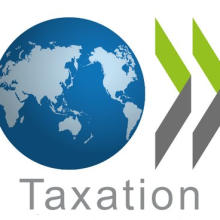Following up on my previous post, David Schizer (Columbia), Biden And The OECD’s Taxation Without Representation: Wall Street Journal Op-Ed: Congress Can Halt Biden’s Rule by Regulation, by Phil Gramm (US Policy Metrics) & Mike Solon (US Policy Metrics):
Before the rise of the regulatory state, America’s economic exceptionalism flowed from clear constitutional boundaries between the spheres of individual freedom and government power. All major federal initiatives were circumscribed by the Constitution and required legislation by both houses of Congress followed by the president’s signature. With rare exceptions, major policy changes required broad bipartisan support to gain a majority in the House and overcome a potential filibuster in the Senate. The result was economic and political stability enforced by checks and balances. While political inertia frustrated elected officials, the benefits of unparalleled economic certainty and unmatched freedom to work, save and invest delivered unequaled prosperity.
With the rise of the regulatory state, every sector of the economy can now be significantly altered by presidential action through executive initiatives with little basis in law. Checked only by the delayed restraints imposed by the courts, presidents now assert unilateral powers so that presidential elections alone produce dramatic shifts in public policy.
Based on almost every conceivable measure of federal power, America’s historic economic certainty and the constitutional system of checks and balances that provides it are under siege by President Joe Biden’s “whole government” regulatory onslaught. In a closely divided Congress, timely defense of our constitutional system and limited government now depends on the ability of a five-vote House Republican majority to restore the power of the purse. …
An obvious target is Mr. Biden’s actions circumventing Congress and agreeing with the Organization for Economic Cooperation and Development to impose an international minimum tax on large international companies, most of which are owned by American investors. Remarkably, the Biden administration agreed to let foreign governments tax U.S. companies on their U.S. earnings if Congress refuses to adopt the minimum tax. In this extraordinary circumvention of the Constitution, the Biden administration has attempted to use an international agreement that Congress never approved to force Congress to raise taxes.
This follows similar administrative practices of using European regulations and antitrust actions to impose policies on U.S. companies that our courts have rejected. Fortunately, the State, Foreign Operations, and Related Programs Appropriations Bill as reported by the House subcommittee terminates all U.S. funding for the OECD. Congress should further disavow the tax agreement and, using the power of the House to legislate on appropriations bills, mandate retaliation against any nation attempting to tax U.S. companies on U.S. earnings. …
The nation needs a replay of the debt-limit unity among House Republicans to bring the Biden imperial presidency back under constitutional control. As James Madison, the father of the Constitution, envisioned it, the power of the purse was “the most complete and effectual weapon with which any constitution can arm the immediate representatives of the people, for obtaining a redress of every grievance.”
Other Wall Street Journal op-eds by Phil Gramm:
https://taxprof.typepad.com/taxprof_blog/2023/07/congress-biden-rule-by-regulation-oecd-global-tax-deal.html




